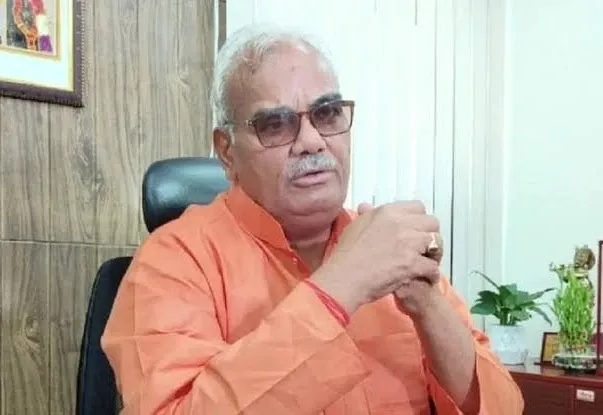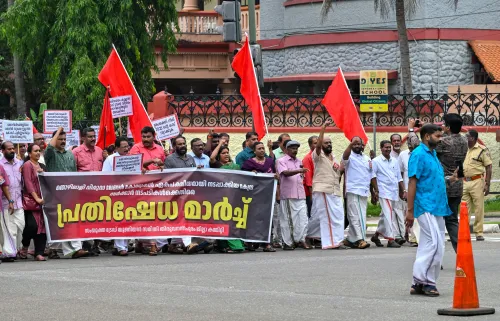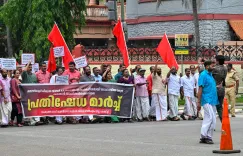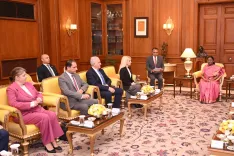Why Did Rajasthan Minister Madan Dilawar Ban Foreign Goods in Three Departments?

Synopsis
Key Takeaways
- Complete ban on foreign goods in specific departments.
- Supports 'Make in India' initiative.
- Ministerial approval required for essential foreign items.
- Consequences for unauthorized purchases.
- Encouragement to support local artisans.
Jaipur, Aug 6 (NationPress) Rajasthan's Education and Panchayati Raj Minister Madan Dilawar has declared a complete prohibition on the acquisition of foreign-made products by the Education, Panchayati Raj, and Sanskrit Education Departments.
Minister Dilawar underlined that this initiative supports Prime Minister Narendra Modi's 'Make in India' campaign.
The objective is to enhance the consumption of Indian-made goods and bolster the local economy.
In cases where a foreign product is deemed necessary and lacks an Indian counterpart, it can only be acquired with ministerial approval.
He stated that the 'Make in India' project, initiated by Prime Minister Modi, seeks to fortify the nation's manufacturing industry and expedite economic growth.
To further this vision, it has been mandated that, wherever feasible, only 'Made in India' products should be utilized across all offices within the Education Department, Sanskrit Education Department, and Panchayati Raj Department.
"In rare situations, where Indian-manufactured goods are genuinely unavailable, prior authorization must be secured from the Minister before acquiring or utilizing such products. If foreign-made items are procured without the necessary approval, the expenses will be recovered from the responsible individual," he stated.
Minister Dilawar noted that any officer or employee who procures foreign items will face stringent consequences, with the cost of such products being reclaimed from them.
In light of Raksha Bandhan, the Education Minister also called upon citizens to opt for indigenous products.
He encouraged women and girls to fulfill their patriotic duty by eschewing foreign-made rakhis and supporting local artisans instead.
In a video shared on social media on Wednesday, he remarked: "We are utilizing foreign products in nearly every aspect, from shaving blades to toothpaste. It's time to put an end to this. Not only government departments but every citizen should consciously refrain from foreign goods in their daily lives."
The Minister accused certain foreign nations of profiting from sales in India while using that revenue to support Pakistan.
Referencing Operation Sindoor, he asserted that China was aiding Pakistan while reaping economic benefits from Indian markets.









